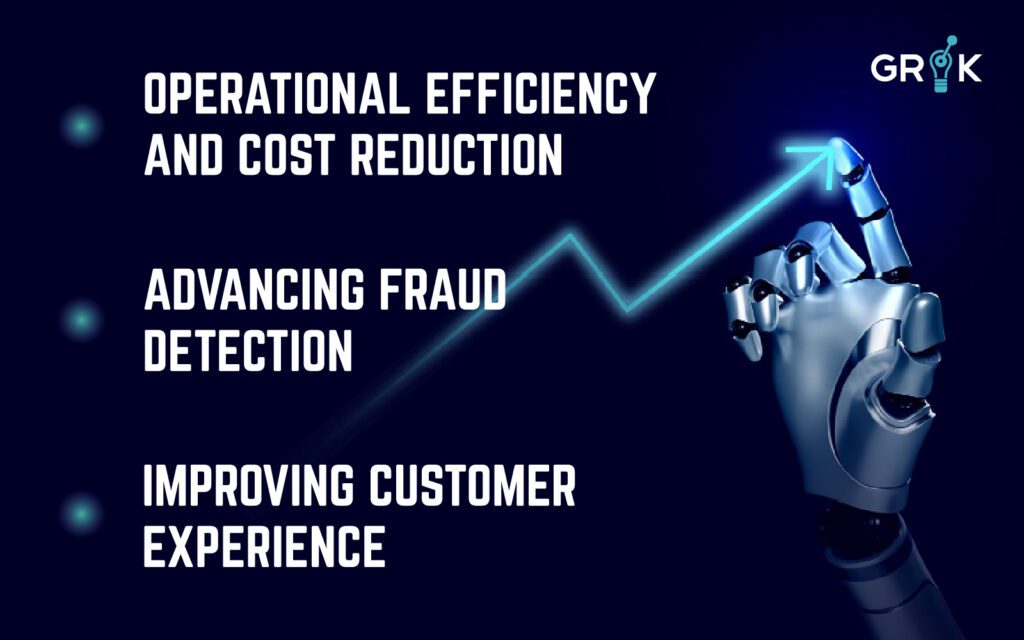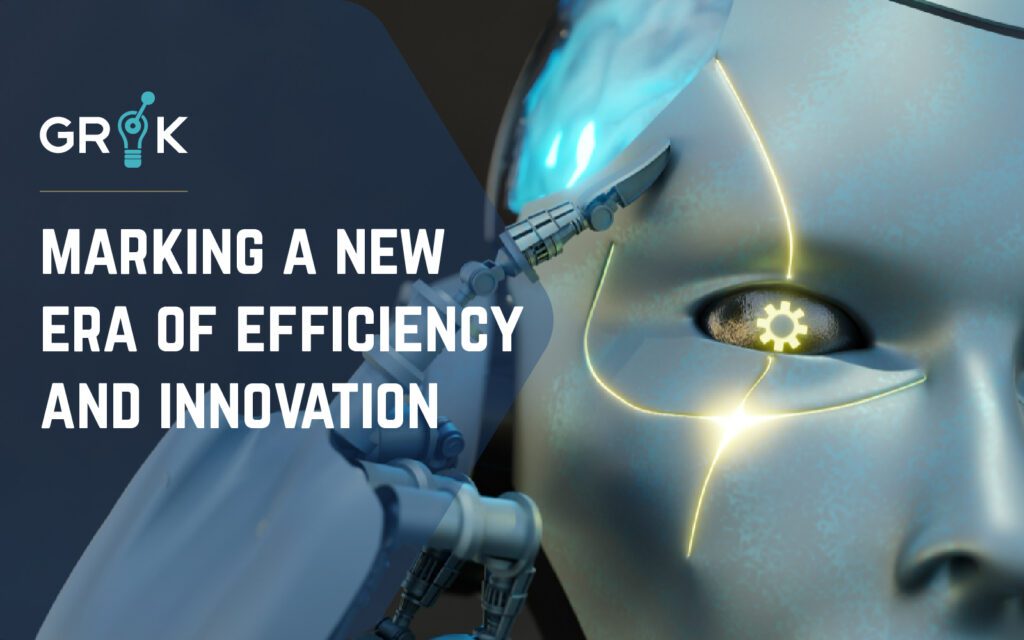Unveiling the Power of AIOps in Business
Have you ever wondered how businesses consistently stay on top of their game in today’s fast-paced world? The secret fundamentally lies in embracing cutting-edge technologies like AIOps. Let’s embark on an exciting journey to discover the wonders of AIOps and its impact on modern business operations.
AIOps: The Game Changer in IT Operations
- What’s AIOps? It’s the fusion of artificial intelligence with IT operations. Think of it as the brainy tech that sifts through data mountains to find the nuggets of gold – insights that businesses need.
- Why It Matters: In a world awash with data, AIOps stands as a beacon of efficiency, offering real-time solutions, predictive analytics, and smart automation.
Exploring AIOps Through Real-world Stories
- From Theory to Practice: We’re not just talking tech; we’re showing it in action. From healthcare to finance, retail to manufacturing, AIOps is making waves.
- Case Studies Galore: Get ready for tales of transformation as we delve into how various industries leverage AIOps to tackle their unique challenges.
Join us as we unveil the transformative role of AIOps in business, turning the complexities of data into streamlined success stories. Whether you’re a tech enthusiast or a business professional, this exploration into the world of AIOps promises to be both enlightening and inspiring. Let’s dive in and witness how AIOps is reshaping the future of business operations!

AIOps in the Tech Industry
In the tech industry, AIOps has become a pivotal tool, significantly enhancing various aspects of business operations. Technology companies are increasingly turning to AIOps to streamline product development, bolster customer support, and boost operational efficiency
AIOps in Business: Revolutionizing Product Development
In product development, AIOps are increasingly being used to analytically analyze user feedback and system performance data. This proactive approach allows companies to swiftly identify and address issues, and to strategically iterate on their products more effectively. For instance, a notable example is a software development company that effectively used AIOps to dramatically reduce its product testing time by innovatively automating error detection and resolution processes, consequently accelerating its product release cycles.
Transforming Customer Support:
AIOps is significantly enhancing customer support. By seamlessly automating the analysis of customer inquiries and feedback, tech companies can efficiently respond to customer needs with greater speed and accuracy. For example, a major tech firm that implemented AIOps to analyze customer service calls resulted in a notable reduction in response times and a boost in customer satisfaction ratings.
AIOps in Business: Enhancing Operational Efficiency:
In terms of operational efficiency, AIOps is being used to monitor and optimize IT infrastructure, leading to reduced downtime and lower operational costs. For instance, a cloud services provider utilized AIOps to predict and prevent system outages, resulting in improved service reliability and customer trust.
These examples demonstrate how AIOps is not just a theoretical concept but a practical solution that is driving improvements across various facets of the tech industry. By leveraging the power of AI in operations, tech companies can innovate faster, respond more effectively to customer needs, and operate more efficiently.
AIOps in Business: Transforming Healthcare
In the healthcare industry, AIOps is making significant strides, transforming how patient care and operational processes are managed. Moreover, the implementation of AIOps in healthcare settings has led to markedly improved efficiency, accuracy, and enhanced patient outcomes.
Enhanced Efficiency in Electronic Health Records (EHR):
One of the critical applications of AIOps in healthcare is the modernization of Electronic Health Records (EHR). These digital records are essential for clinicians to understand and predict patient conditions. However, many EHR systems are based on outdated infrastructure, leading to inaccuracies. AIOps solutions can be integrated into EHR systems to efficiently decode data and improve diagnostic algorithms, thus enhancing data usage, flexibility, and decision support.
AIOps in Business: Optimizing Clinical Documentation:
A significant portion of a healthcare worker’s time is often consumed by administrative tasks like data entry and system security checks. AIOps, particularly through natural language processing, can automate much of this documentation, allowing healthcare professionals to focus more on patient care.
Improving Interoperability in EHR:
The lack of standardization in data collection and management in healthcare often leads to lost or inaccurate information, adversely affecting patient care. Fortunately, AIOps can effectively help resolve interoperability issues by strategically implementing machine learning and artificial intelligence, ensuring that EHR functions are up-to-date and patient care is not delayed.
Facilitating Quick and Accurate Clinical Decision-Making:
AIOps tools can analyze vast volumes of data from EHR systems, leading to precise insights. This analysis helps predict high-risk conditions and provide personalized care information, enhancing decision-making processes.
Automating Patient Data Extraction:
AIOps-led EHR systems significantly enable quick and accurate access and extraction of patient data, thus maintaining data structures and allowing efficient review and utilization by healthcare professionals.
Furthermore, the integration of AIOps into healthcare IT solutions represents a major advancement in ensuring better patient care and efficient healthcare operations. By effectively leveraging data, healthcare providers can substantially enhance treatment plans and improve patient health outcomes.
Ultimately, these implementations of AIOps in healthcare showcase its potential to revolutionize patient care and operational efficiency, marking it as a crucial tool in the industry’s ongoing digital transformation.

AIOps in Financial Services: Revolutionizing Banking and Finance
Introduction to AIOps in Finance
Welcome to the world of AIOps in the financial sector! In an industry where precision and efficiency are paramount, AIOps is making a monumental impact. Indeed, it’s reshaping everything from operational workflows to customer experiences.
Operational Efficiency and Cost Reduction
- Streamlining Operations: Imagine a world where financial workflows are not just faster, smoother, and more efficient, but transformed. That’s the reality AIOps is creating. By strategically automating routine tasks, AIOps is significantly boosting operational efficiency and simultaneously reducing costs.
- Enhancing Data Governance: AIOps isn’t just about speed; it’s also about precision. With its ability to manage and analyze large volumes of data, AIOps is ensuring higher data accuracy and governance, crucial in the finance sector.
Advancing Fraud Detection
- Fighting Financial Fraud: Fraud detection has entered a new era with AIOps. By analyzing transaction patterns, AIOps tools are quickly identifying anomalies, safeguarding both the institutions and their customers from fraudulent activities.
- Predictive Power: The predictive analytics capabilities of AIOps mean that financial institutions can anticipate and prevent fraud before it happens, staying one step ahead of fraudsters.
AIOps in Business: Improving Retail Customer Experience
- Seamless Digital Services: In the age of digital banking, customer experience is king. AIOps is playing a key role in ensuring seamless interactions across online banking, mobile apps, and more.
- Personalized Customer Interactions: AIOps enables banks to provide personalized services, understanding customer needs and preferences like never before.
The Road Ahead: AIOps in Finance
- Embracing the Future: The future of finance is intelligent and data-driven, with AIOps at the forefront. As technology evolves, its role in strategic decision-making and risk management is set to grow.
- Staying Ahead in a Competitive Market: For financial institutions, AIOps is not just a tool; it’s a strategic asset. It’s about leveraging the power of AI and machine learning to stay competitive in a rapidly evolving market.
In summary, AIOps is transforming the financial sector, bringing efficiency, accuracy, and innovation to one of the most critical industries in the world. It’s more than just a technological evolution; it’s a groundbreaking business revolution. Are you ready to explore how AIOps can radically transform your financial operations? The journey into intelligent banking has indeed just begun!

AIOps in Business: Shaping Retail and E-Commerce
Introduction to AIOps in Retail
The integration of AIOps (Artificial Intelligence for IT Operations) in retail and e-commerce is more than a trend; it’s a fundamental shift. As the industry adapts to digital-first strategies, AIOps stands at the forefront, driving efficiency and innovation. This technology’s ability to manage complex data and automate processes is revolutionizing the sector, from supply chain logistics to customer interactions.
AIOps in Business: Streamlining Financial Operations
- Efficiency in IT Operations: Retailers are implementing AIOps to manage and automate alerts and incidents across their IT infrastructure. This leads to more efficient handling of systems like point-of-sale (POS) and inventory management, resulting in smoother operations and fewer disruptions.
- Case Study Insight: For example, a retail chain utilized AIOps to automate incident responses in their POS systems, reducing downtime and improving overall store performance.
Predictive Inventory Management
- Proactive Stock Management: AIOps facilitate better inventory control by predicting demand patterns and potential supply chain disruptions. This allows retailers to optimize stock levels, avoiding overstocking or stockouts.
- Real-World Application: An e-commerce platform uses AIOps to analyze consumer purchasing trends, leading to more accurate stock predictions and timely restocking, thus enhancing sales and reducing wastage.
Enhancing Customer Experience
- Personalization and Response: By strategically prioritizing critical IT incidents, AIOps effectively ensures that customer-facing applications run smoothly. This technology is crucial in personalizing customer interactions and swiftly addressing any technical issues that could affect the customer experience.
- Customer Service Transformation: A leading online retailer successfully employed AIOps to significantly enhance its customer service chatbots, offering faster and more accurate responses to customer inquiries, thereby improving customer satisfaction.
Supporting the Digital Retail Revolution
- Facilitating Digital Transition: In the journey towards digital transformation, AIOps serves as a vital tool. It ensures real-time monitoring and management of digital platforms, keeping pace with the rapid evolution of the retail sector.
- Digital Agility: AIOps empowers retailers to quickly adapt to market changes. For instance, a fashion retailer leveraged AIOps for real-time analytics of online shopping behaviors, enabling them to rapidly adjust their digital marketing strategies.
AIOps is proving to be an indispensable asset in the retail and e-commerce sectors. By enhancing operational efficiency, optimizing inventory management, improving customer experiences, and supporting digital transitions, AIOps is not just a technological solution but a strategic imperative for retailers looking to thrive in the digital age.

AIOps in Business: Manufacturing Efficiency and Quality
In the manufacturing industry, the innovative integration of AIOps marks a pivotal shift, bringing unprecedented efficiency and quality control to production processes.
AIOps in Business: Revolutionizing Predictive Maintenance
Case in Point: A prominent automotive manufacturer leveraged AIOps for real-time monitoring of equipment health. This proactive strategy significantly cut down unplanned downtime by predicting maintenance needs.
Enhancing Quality Control
AIOps has made a notable impact on quality control. For example, an electronics manufacturer implemented AIOps to detect defects in circuit boards during the production process. This early detection not only ensured higher product quality but also led to substantial reductions in waste and rework.
Streamlining Production Processes
AIOps is also instrumental in optimizing manufacturing operations. It analyzes various factors such as machine performance and resource consumption, leading to more efficient production lines. This optimization results in improved yields and reduced energy consumption, exemplifying AIOps’s role in enhancing operational efficiency.
Through these strategic applications, AIOps is proving to be a transformative tool in the manufacturing sector, ushering in a new era of data-driven efficiency and quality control. Furthermore, its role in enhancing decision-making processes and fostering innovation is undoubtedly contributing to the sector’s ongoing growth and development.
Lessons Learned and Best Practices in AIOps Implementation
As businesses across various sectors eagerly adopt AIOps, they inevitably uncover valuable lessons and proactively establish best practices that are crucial for successful implementation. Furthermore, analyzing case studies from industries like manufacturing, healthcare, finance, and retail yields a wealth of insights into the strategically effective use of AIOps.
Understanding the Importance of Data Quality:
One of the key lessons learned is the indispensable role of high-quality data in AIOps success. For AIOps to effectively deliver meaningful insights and automation, it requires access to accurate, comprehensive, and timely data. Thus, businesses need to actively invest in robust data management practices to ensure that their AIOps solutions are well-informed and effective.
Tailoring AIOps to Specific Business Needs:
Another key lesson is the importance of customizing AIOps solutions to fit the unique needs and contexts of different businesses. AIOps is not a one-size-fits-all solution; its implementation and configuration should consider specific industry requirements, regulatory environments, and company objectives.
Ensuring Cross-Departmental Collaboration:
Successful AIOps implementation crucially requires collaboration across various departments within an organization. IT teams need to closely work with other functions like operations, customer service, and product development to ensure that AIOps tools are aligned with broader business goals and strategies. Moreover, fostering a culture of cross-functional teamwork and communication is instrumental in achieving the full potential of AIOps integration.
Fostering a Culture of Continuous Learning and Adaptation:
As AIOps is a rapidly evolving field, organizations must proactively embrace a culture of continuous learning and adaptation. This necessitates regularly updating their AIOps strategies, diligently staying abreast of the latest developments in AI and machine learning, and readily being open to adjusting their approaches based on new insights and industry trends. Furthermore, ongoing engagement with evolving technologies and methodologies is essential for staying ahead in the competitive landscape.
Investing in Skills and Training:
Implementing AIOps successfully also requires investing in the necessary skills and training. Businesses should actively ensure that their teams are adequately equipped with the knowledge and expertise needed to efficiently leverage AIOps. This might involve proactively training existing staff, strategically hiring new talent, or wisely partnering with external experts. Additionally, fostering a culture of innovation and continuous improvement is crucial for the successful integration and optimization of AIOps within organizational processes.
By strategically understanding and applying these lessons and best practices, organizations can effectively maximize the benefits of AIOps, thus driving greater efficiency, innovation, and competitive advantage in their operations. Moreover, as more companies openly share their experiences with AIOps, the collective knowledge of best practices will inevitably continue to evolve, further guiding future implementations toward even greater success.

AIOps as a Catalyst for Future Business Success
Reflecting on AIOps’ Transformative Journey
As we conclude our exploration, the transformative impact of AIOps across industries is undeniable. It has redefined operational efficiency, customer service, and strategic decision-making. From the manufacturing floors to high-speed digital transactions in finance, AIOps has proven to be an invaluable asset, providing insights and automation that significantly enhance business operations.
Envisioning the Future with AIOps
Looking ahead, the potential of AIOps is boundless. As businesses continue to navigate an increasingly complex data landscape, the importance of intelligent, automated solutions becomes more pronounced. AIOps is expected to become even more sophisticated, offering deeper insights and more comprehensive automation. It will continue to drive business innovation, helping companies to not only adapt to the changing market dynamics but also to shape them.
Embracing the Ongoing Role of AIOps
The journey with AIOps is just beginning. Its ongoing evolution promises to bring about even more innovative solutions, reshaping industries and redefining what’s possible. For businesses looking to thrive in the future, embracing AIOps and its potential for enhancing efficiency and innovation is not just an option; it’s a necessity.
In sum, AIOps stands as a testament to the power of artificial intelligence in transforming business operations. Its impact is profound and its potential limitless. As we look to the future, AIOps will undoubtedly continue to play a pivotal role in driving business success, marking a new era of efficiency and innovation.
For further insight into how domain-agnostic AIOps is revolutionizing business operations and IT across various industries, enhancing agility, and driving innovation, be sure to explore our detailed analysis. Read our comprehensive article, “The Impact of Domain-Agnostic AIOps: Transforming Business & IT” which delves into the multifaceted benefits and real-world applications of AIOps, providing you with a clearer perspective on its transformative potential.

